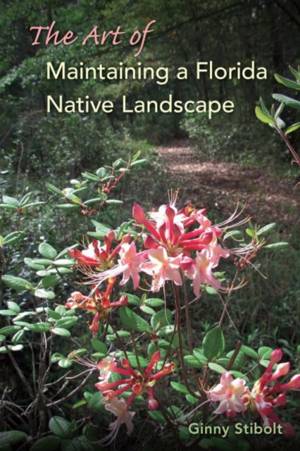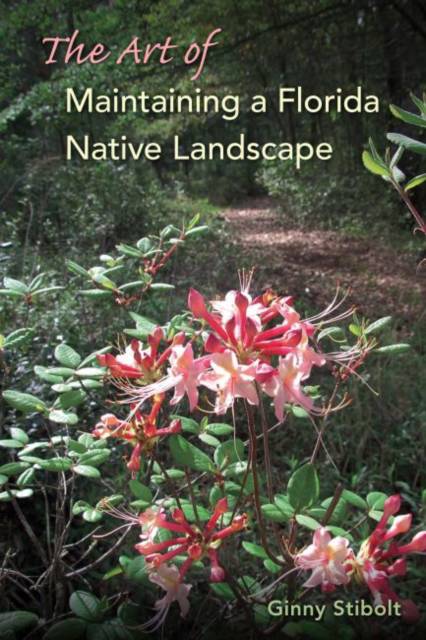
- Afhalen na 1 uur in een winkel met voorraad
- Gratis thuislevering in België vanaf € 30
- Ruim aanbod met 7 miljoen producten
- Afhalen na 1 uur in een winkel met voorraad
- Gratis thuislevering in België vanaf € 30
- Ruim aanbod met 7 miljoen producten
Zoeken
€ 34,95
+ 69 punten
Omschrijving
"Follow this professional gardening advice to end up with a balanced, attractive, easy-to-maintain Florida native garden. It is a gardening book to cherish."--Roger L. Hammer, author of Attracting Hummingbirds and Butterflies in Tropical Florida "Everything you need to know from just getting started to long-term development and maintenance of the native garden of your dreams."--Troy Springer, owner of Springer Environmental Services, Inc. "A great resource for learning some of the best approaches to gardening with natives."--Steven W. Woodmansee, CEO and biologist for Pro Native Consulting
The standard dream home garden--the kind splashed across magazine covers--typically features emerald lawns and manicured flowerbeds. But most gardeners soon discover that those picture-perfect landscapes require hard work, persistent watering and fertilizing, and plenty of pesticides.
As more homeowners free themselves from the shackles of regular lawn maintenance, they turn to native plants, which eventually start to look scruffy and scraggly. While there are plenty of guides for establishing a native landscape, there are few comprehensive resources for their maintenance. In this easy-to-read, practical, and honest approach to native plant landscaping, botanist and experienced gardener Ginny Stibolt shares techniques for living with a native landscape and personal lessons learned over the years. Dispelling the myth that native plants require no maintenance, she encourages readers with a simple upkeep schedule that is much more flexible than traditional suburban landscaping. She enumerates the many ecological rewards and covers the basics of gardening before delving into the removal of invasives and other unwanted plants, plant selection, planting methods, propagation, as well as the creation of manageable edges, meadows, groves, and wet sites. This is a must-read for novices and advanced gardeners alike. Stibolt's advice can be applied to small yards or large community properties. With just a little bit of effort and a reimagining of the ideal, gardeners can spend less time watering and weeding and more time enjoying their handiwork. And Mother Nature will thank them, too!
The standard dream home garden--the kind splashed across magazine covers--typically features emerald lawns and manicured flowerbeds. But most gardeners soon discover that those picture-perfect landscapes require hard work, persistent watering and fertilizing, and plenty of pesticides.
As more homeowners free themselves from the shackles of regular lawn maintenance, they turn to native plants, which eventually start to look scruffy and scraggly. While there are plenty of guides for establishing a native landscape, there are few comprehensive resources for their maintenance. In this easy-to-read, practical, and honest approach to native plant landscaping, botanist and experienced gardener Ginny Stibolt shares techniques for living with a native landscape and personal lessons learned over the years. Dispelling the myth that native plants require no maintenance, she encourages readers with a simple upkeep schedule that is much more flexible than traditional suburban landscaping. She enumerates the many ecological rewards and covers the basics of gardening before delving into the removal of invasives and other unwanted plants, plant selection, planting methods, propagation, as well as the creation of manageable edges, meadows, groves, and wet sites. This is a must-read for novices and advanced gardeners alike. Stibolt's advice can be applied to small yards or large community properties. With just a little bit of effort and a reimagining of the ideal, gardeners can spend less time watering and weeding and more time enjoying their handiwork. And Mother Nature will thank them, too!
Specificaties
Betrokkenen
- Auteur(s):
- Illustrator(s):
- Uitgeverij:
Inhoud
- Aantal bladzijden:
- 296
- Taal:
- Engels
Eigenschappen
- Productcode (EAN):
- 9780813061313
- Verschijningsdatum:
- 8/09/2015
- Uitvoering:
- Paperback
- Formaat:
- Trade paperback (VS)
- Afmetingen:
- 150 mm x 226 mm
- Gewicht:
- 408 g

Alleen bij Standaard Boekhandel
+ 69 punten op je klantenkaart van Standaard Boekhandel
Beoordelingen
We publiceren alleen reviews die voldoen aan de voorwaarden voor reviews. Bekijk onze voorwaarden voor reviews.











